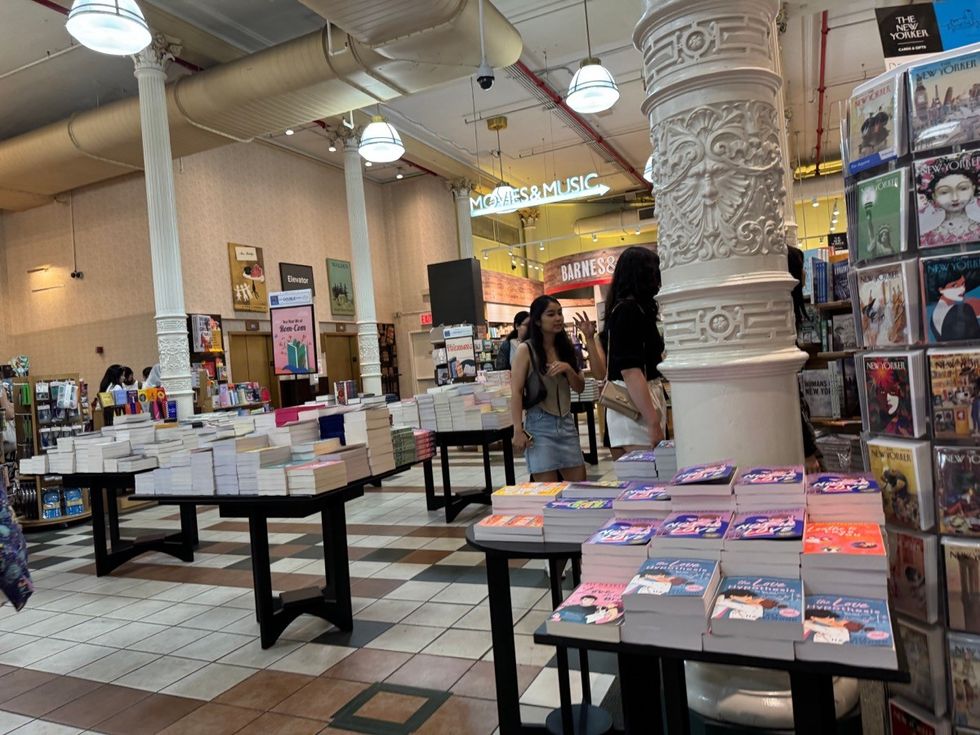A Kindle may be the “it” bookworm accessory, but Barnes & Noble is still the talk of the town, lit-erally. The bookseller is writing its own underdog story as it takes on its biggest competitor yet: Amazon. Despite a steady increase in online book sales and e-readers, physical Barnes & Noble stores are having a resurgence. In 2024, the book chain opened nearly 60 stores nationwide and plans to open 60 more this year. Barnes & Noble currently operates 600 locations in the U.S.
RELATED: Big Lots Closes Deal to Keep Hundreds of Stores Open—What You Need to Know.
When and where are new Barnes & Noble stores opening?
Local news outlets have reported on impending openings, including new Barnes & Noble stores in the following areas:
Some openings are the result of relocations, like the Naperville store and other stores in Huntington Station, New York, and the Tampa, Florida area, while others will occupy brand-new locations.
A dozen Barnes & Noble locations also opened in Nov. 2024 in California, Indiana, Kansas, New Hampshire, New Jersey, New York, Utah, and Washington, D.C., Publishers Weekly reported.
As of this writing, a complete list of new Barnes & Noble locations has yet to be released. Best Lifereached out to Barnes & Noble for more information on new stores and opening dates in 2025.
Barnes & Noble is shifting its strategy.
Shutterstock
It’s worth noting that just a few years ago, Barnes & Noble was actually closing stores, and a South Carolina location is shuttering Jan. 19. But it appears strategy is shifting.
At the helm of the company’s comeback is B&N CEO James Daunt. In a wide-ranging interview with PBS News, Daunt revealed his secret to Barnes & Noble’s newfound success—and how Amazon’s huge selection of “boring books” has aided the business’s recovery mission.
Daunt said Barnes & Noble’s nationwide surge in foot traffic isn’t due to a new, revolutionary cookie-cutter formula. Instead, he has adopted a neighborhood bookstore approach, in which store layouts and featured events are up to each location’s discretion, not corporate’s.
“The key insight that I have is that it is about the bookselling team and it’s about how you take all of this huge number of books and arrange them and display them in a manner which really engages with your local community,” Daunt explained of his philosophy. “Leave it to the teams in each store. The vast majority of them will do it exceptionally well, and your stores will become better and busier and the business will thrive.”
Victoria Harty, assistant manager at the bookseller’s Upper West Side Manhattan location, said the departure from a “very, very regimented” business model with “no thought” has allowed her location to better cater to their community’s needs.
Rather than receiving instructions on exactly how to set things up, emphasis is placed on local reading tastes and social media trends, like viral BookTok titles.
“It was a lot of young readers, almost this generation that was coming into physical bookstores looking for books. So what I started to do with that was look at those titles, like what they were coming in for, and how do you take that one title and curate a display around it? Like, what are those books that are similar, pairing them together and creating a bigger display from it,” Harty told PBS News.
RELATED: Walgreens Is Closing More Stores—Here’s Where and When.
Daunt said Amazon has helped B&N get rid of “boring books.”
While many would argue that Amazon is detrimental to booksellers like Barnes & Noble, Daunt said it’s been the exact opposite.
“What it’s taken is all the boring books out of our stores. We used to have great, huge medical sections that taught doctors and nurses and all the other professionals. But those books are very boring,” quipped Daunt. “No more. You go onto Amazon, bump, it arrives through your letterbox three minutes later.”
That said, Daunt isn’t interested in putting indie bookstores out of business. As an independent bookstore owner himself (he founded Daunt Books, a small chain of London bookstores that opened in 1990), Daunt said both types of bookstores can “coexist.”
“My instincts are that of an independent bookseller. I would never open up in a location where I believed that I was threatening an independent bookseller ever, because that’s totally unnecessary. We’re in this vast country of ours with far too few bookstores,” he said.

